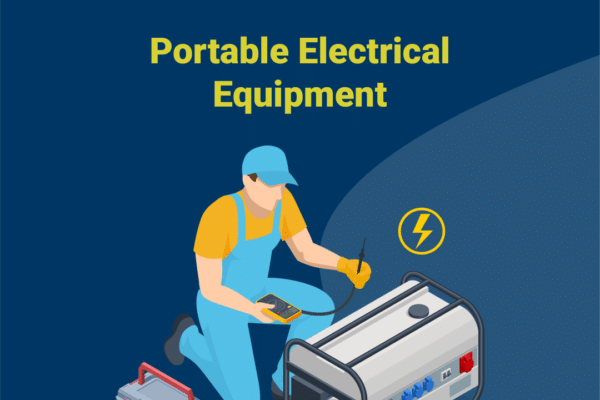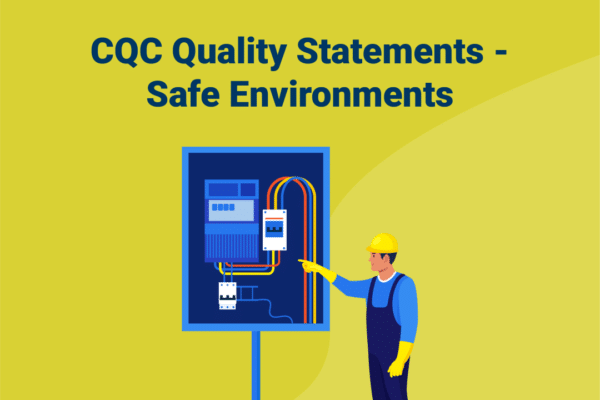Download our monthly Health and Safety review for September 2022 on ‘RIDDOR’ by our partner, Napthens here
DOWNLOAD NOW
Alternatively, read it here:
When an incident occurs in any workplace, whether real harm arises as a result of it or not, there is a possibility that the business owner, employer, or person in control of the premises may be legally obliged to report this incident to the authorities. It’s of vital importance that operators of businesses and services within the sector are clear on the types of incidents which may require a notification to be made to the Health & Safety Executive, how to evaluate the incident to determine whether or not its reportable, and how to make the report should it be necessary.
It’s also important to remember that whether an incident qualifies as reportable under RIDDOR (The Reporting of Injuries, Diseases and Dangerous Occurrences Regulations) or not, its still critical that the business investigates it, finds out what went wrong and why and puts in steps to prevent recurrence. RIDDOR is focussed on near misses with a potential for serious harm, actual serious injuries, and diseases but that doesn’t mean we can ignore those incidents with less significant consequences altogether.
In summary, RIDDOR is the law that requires employers, and other people in charge of work premises, to report and keep records of:
- Work-related accidents which cause deaths
- Work-related accidents which cause certain serious injuries (reportable injuries)
- Diagnosed cases of certain industrial diseases; and
- Certain ‘dangerous occurrences’ (incidents with the potential to cause harm)
Reporting certain incidents is a legal requirement. The report informs the enforcing authorities (HSE, local authorities and the Office for Rail Regulation (ORR)) about deaths, injuries, occupational diseases, and dangerous occurrences, so they can identify where and how risks arise, and whether they need to be investigated. This allows the enforcing authorities to target their work and provide advice about how to avoid work-related deaths, injuries, ill health, and accidental loss.
Work Related Accidents:
To determine if RIDDOR is applicable it’s important to understand the definition of an accident. An accident is a separate, identifiable, unintended incident that causes physical injury. This specifically includes acts of nonconsensual violence to people at work.
Not all accidents need to be reported, a RIDDOR report is required only when the accident is work-related, and it results in an injury of a type which is reportable (see list below).
When deciding if the accident that led to the death or injury is work-related, the key issues to consider are whether the accident was related to the way the work was organised, carried out or supervised, any machinery, plant, substances, or equipment used for work and the condition of the site or premises where the accident happened.
If none of these factors are relevant to the incident, it is likely that a report will not be required.
Types of Reportable Injury:
All deaths to workers and non-workers must be reported if they arise from a work-related accident,
including an act of physical violence to a worker. Suicides are not reportable, as the death does not result from a work-related accident.
Specified injuries to workers, there’s a full list here but injuries in this category include a fracture, other than to fingers, thumbs and toes, amputation of an arm, hand, finger, thumb, leg, foot or toe, permanent loss of sight or reduction of sight, crush injuries leading to internal organ damage and serious burns (covering more than 10% of the body, or damaging the eyes, respiratory system or other vital organs).
Over-seven-day injuries to workers, where an employee, or self-employed person, is away from work or unable to perform their normal work duties for more than seven consecutive days (not counting the day of the accident).
Injuries to non-workers
Work-related accidents involving members of the public or people who are not at work must be reported if a person is injured and is taken from the scene of the accident to hospital for treatment to that injury. There is no requirement to establish what hospital treatment was actually provided, and no need to report incidents where people are taken to hospital purely as a precaution when no injury is apparent.
If the accident occurred at a hospital, the report only needs to be made if the injury is a ‘specified injury’ (see above).
Reportable occupational
Employers and self-employed people must report diagnoses of certain occupational diseases, where these are likely to have been caused or made worse by their work. These diseases include carpal tunnel syndrome, severe cramp of the hand or forearm, occupational dermatitis, hand-arm vibration syndrome, occupational asthma, tendonitis or tenosynovitis of the hand or forearm, any occupational cancer and any disease attributed to an occupational exposure to a biological agent.
Reportable dangerous occurrences
Dangerous occurrences are certain, specified ‘nearmiss’ events (incidents with the potential to cause harm.) Not all such events require reporting. There are 27 categories of dangerous occurrences that are relevant to most workplaces. For example, the collapse, overturning or failure of load-bearing parts of lifts and lifting equipment, plant or equipment coming into contact with overhead power lines, explosions or fires causing work to be stopped for more than 24 hours.
When an incident occurs, you can use the RIDDOR Decision flow chart (in the Resource Centre) to determine how to proceed.
It’s vital to remember that separate requirements to notify the CQC of serious incidents and specified instances where patient or service user safety have been affected must be adhered to, even where there is overlap or duplication in a specific incident case. An incident may be both RIDDOR Reportable and notifiable to the CQC.






